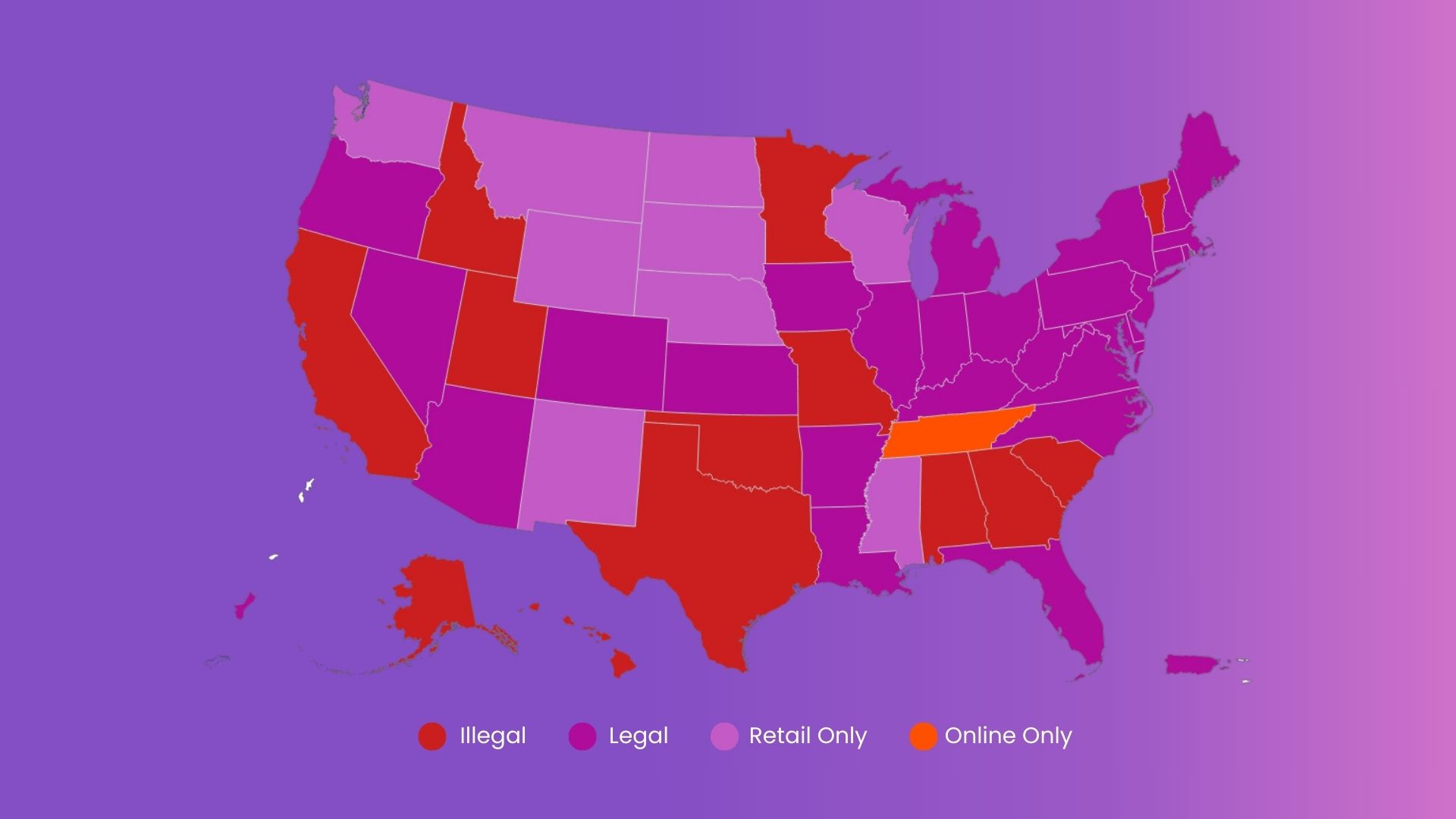Top 28 Questions to Ask a Digital Marketing Agency Before Hiring

Before You Engage with the Digital Marketing Agency
Don’t rush into the process of choosing marketing partners. There’s a getting-to-know stage before working with a prospective digital marketing agency. Here’s what an initial consultation should look like:
- Understanding the Role of a Digital Marketing Agency: Identify the agency’s expertise and experience. There are firms that specialize only in one aspect. Then, there are search marketing agencies like Fortis Media that offer a full suite of services. You can get help on search results, social media, content creation, and website development.
- Clarifying Your Business Needs and Goals: Marketing agencies align their services to your company goals. As such, you need to communicate your business aspirations. Then, the right marketing agency will set realistic and attainable goals. Goal-setting serves as a guide for your current and future marketing strategies.
- Transition to Key Questions: Don’t hesitate to ask tons of questions along the way. It’s the best way to guarantee a working partnership with a marketing firm. This sets a culture of communication and transparency between you and the digital agency. Plus, it makes the process of reaching your marketing goals more efficient.
Constant communication can help avoid hiccups and detours. Read more below to discover the best questions to ask a digital marketing agency.
Assessing the Agency’s Background and Expertise
Ask these questions to check if the agency’s expertise fits your marketing needs.
1. How long have you been in business?
Mileage is a necessary asset for any marketing agency. You want a partner who has survived the ups and downs of the market, particularly in your niche. An experienced digital agency can anticipate market fluctuations and seasonal dips in consumer demand.
A new agency can be handy with the latest marketing tools. But without experience, adapting to the market’s evolution could be difficult.
Red flag: The agency’s messaging is vague when providing a timeframe of their origin. You can request to see relevant, non-confidential documents such as business permits.
2. What industries do you specialize in?
Speaking of experience, prospective agencies should have credentials in your niche. Industry-specific experience can help level up your brand strategy over the competition.
Agencies specialize in particular industries, including retail, fast-moving consumer goods, healthcare, and media. Soon, agencies will cater to emerging industries, such as AI, telemedicine, and sustainable agriculture. Even search marketing experts like Fortis Media already specialize in iGaming and eSports.
Red flag: Be careful in working with agencies claiming to be experts in every industry. This might be too good to be true, especially if they’re a new team.
3. Can you provide examples of past successes?
In digital marketing, results are the number one measurement of success. Your marketing partner should have a trail of successful marketing campaigns, especially in your niche.
Ask for data-backed charts and visualizations of their previous campaigns. Usually, agencies use analytics tools like Google Analytics for search results. On the other hand, Hootsuite can assess marketing performance on social media.
Red flag: Agencies that don’t share specific data or details about their previous clients. A lack of transparency could indicate marketing failure or strained partnerships with clients.
4. Do you have case studies or references?
Most digital marketing agencies post case studies on their websites and social channels. Case studies detail the process behind their successful marketing efforts.
Along with case studies, you can also ask for client references. Agencies will give you contact information of their previous or current clients. Then, you can reach out to those clients to ask about their partnership with the agency.
Red flag: Client references that are difficult to reach. This could indicate a strained relationship or low satisfaction with the agency.

Questions About Services Offered
Find out the marketing agency’s services that directly align with your business goals.
5. What specific services do you provide?
Typically, digital agencies focus on one or two marketing specializations. Here are the usual services covered by a marketing agency:
- Search Engine Optimization (SEO): Keyword research, technical SEO, on-page optimization, and link building.
- Pay-Per-Click (PPC) Advertising: Creating and running advertisements on Google Ads and social media channels.
- Social media marketing: Community management and platform-specific content strategy.
- Content marketing: Creating, distributing, and optimizing content across various online platforms.
- Email marketing: Building email lists, creating personalized emails, and automating workflows.
- Web development: Developing and optimizing the User Experience (UX) and User Interface (UI) of your website.
- Analytics: Tracking website traffic, monitoring social media engagements, and evaluating brand authority.
If you don’t need to hit all these areas, just communicate with your prospective agency. It’s actually better to commit to one type of service at a time. This approach helps maximize your investment.
Red flag: Don’t commit to agencies that only offer full-suite services. A marketing agency should be flexible enough to only provide the service that the business needs.
6. How do these services align with our goals?
Marketing agencies should identify which service can address your most pressing needs. Do you need to focus on one service or is it better to combine two?
Services are usually aligned to these marketing goals and needs:
- Generating high-intent leads
- Converting customers
- Improving customer retention
- Increasing brand awareness
- Diversifying into a new audience
However, this question is still part of the initial consultation. So, agencies might not be inclined to share very specific tactics. Still, it’s a good sign if the agency can provide a direction moving forward.
Red flag: Agencies that can’t properly gauge your marketing needs. They should be able to evaluate the current state of your website or social media channel.
7. Do you offer full-service digital marketing or specialize in certain areas?
Most digital marketing agencies immediately offer a full-service package during a pitch. But more often than not, you don’t need the entire package.
Your priority should be on their expertise in your niche. This approach provides the following benefits:
- Undivided focus on more essential goals
- More cost-effective approach as compared to hiring a full-service team
- Easier progress monitoring and tracking
We won’t blame you if you want a well-rounded agency to optimize your marketing campaigns. However, it’s recommended to choose an agency with a stated specialization. This approach is a better option for small and medium-sized businesses.
Red flag: Agencies that don’t offer services specific to your niche. Industry expertise should be your priority when choosing a marketing agency.
Questions on Strategy and Approach
The next stage is to discuss the marketing agency’s custom-tailored strategy for your brand’s success.
8. How do you develop a digital marketing strategy?
Agencies should have a step-by-step approach to developing digital marketing strategies. Of course, each client will be different in their own way. However, a systematic approach serves as a guide, both from the perspectives of the agency and the client.
For reference, here’s how marketing teams plot their playbook:
- Client consultation: Understand the client’s business venture and its current position in the market.
- Goal setting: Set realistic goals that can help the client gain a competitive advantage in the market.
- Audience segmentation: Identify the client’s target audience and segment them based on data and demographics.
- Analytics: Set up analytics tools to adjust weak spots in the marketing strategy.
Partner with an agency that understands your core values and pain points. This way, both you and the agency are on the same page in developing a strategy.
Red flag: Be wary of agencies that don’t have data analysis capabilities. Without data-driven insights, it would be improbable to cover each step of strategy development.
9. Can you walk us through your process?
This question dives into the innovative expertise of a marketing agency. You’ll learn about the unique tactics they implement to develop a campaign.
A marketing agency should walk you through the process of developing and implementing a campaign. When they do, here are specific tactics that you should hear:
- Needs assessment: The agency will create a detailed document of the client’s goals and needs. This assessment also lists the marketing challenges that the brand might encounter.
- Buyer persona: A buyer persona describes the ideal customers for the brand. This could depend on demographics, behavioral patterns, pain points, and motivations.
- Competitive analysis: Agencies analyze the strengths and weaknesses of the client’s competitors. For example, an SEO competitive analysis provides smart insights to increase your website authority.
- Ongoing optimization: The process doesn’t stop when the marketing campaign starts. Agencies should elaborate on how they measure success and adjust strategies.
Moreover, there should be continuous feedback from the agency’s team. You should know how and when you’ll receive progress reports and data visualizations.
Red flag: Stay away from agencies that don’t involve clients in the strategy development and implementation. It doesn’t matter if they’re good at what they do. Lack of client involvement leads to miscommunication and misbranding.
10. How do you tailor strategies to different industries?
Each industry presents challenges that are unique to their market. This calls for a marketing approach that’s customized to the client’s business sector. This targeted strategy is a priority when businesses hire a marketing agency.
Agencies roll out tailor-made strategies to each industry. Here are several examples:
- eCommerce: Create unique product descriptions to boost product and category pages.
- Healthcare: Target long-tail keywords to rank on very specific health conditions and treatments.
- Technology: Engage in technological discussions on social media and online forums.
- Finance: Focus on localized SEO in generating leads that have a high purchase intent.
- Education: Pivot to inbound marketing to increase brand authority in the education sector.
A potential marketing agency also considers industry-specific regulations. This ensures that your campaigns and ads don’t violate any policy.
Red flag: Agencies that cannot provide real examples of their work in different industries. This could indicate a lack of expertise, especially in your niche.
11. What is your approach to SEO, PPC, and content marketing?
SEO, PPC, and content marketing make up the lion’s share of your marketing efforts. These essential parts of your strategy should merge to reach the same goals.
It’s not easy to streamline your processes in these marketing areas. For instance, how can content creation boost your paid social campaigns?
Agencies have unique ways of integrating inbound marketing, paid advertisements, and content writing. To give you an idea, we provided several proven strategies:
- Targeting similar keywords for long-form blog posts and social media ads
- Leveraging content marketing to acquire quality backlinks
- Optimizing landing pages to maximize paid advertising clicks
Integrating these strategies can increase your overall Return on Investment (ROI). Plus, you’re ensuring brand consistency across all digital platforms.
Red flag: Agencies that rely heavily on traditional strategies. These outdated tactics include quantity-focused link-building or keyword stuffing.

Assessing the Team and Expertise
The experts behind your marketing project are key to your brand’s sustainable growth.
12. Who will be working on our account?
No matter the industry, a marketing agency should have a full-service team ready. They should have a go-to expert, whether it’s for writing content or analyzing data.
Typically, an agency’s team is composed of the following essential roles:
Marketing specialists:
- SEO specialist
- PPC specialist
- Social media manager
- Community manager
- Content marketing manager
- Email marketing specialist
- Public relations specialist
- Data analyst
Creative team:
- Creative director
- Art director
- Graphic designer
- Copywriter
- Video producer
- Motion graphics editor
- Photographer
- Web developer
- UX/UI designer
Client services team:
- Client onboarding specialist
- Account manager
- Client success manager
- Project manager
- Client feedback coordinator
- Business development manager
An organized team structure is a good sign moving forward. This helps ensure a smooth workflow, especially for large-scale and complex marketing projects.
Red flag: Agencies that require a team member to work on multiple projects at the same time. This might result in a lack of attention or priority on your project.
13. What are their qualifications and experience?
It’s not enough that agencies have designated roles. What matters is the credentials behind those positions.
A reputable marketing agency should provide portfolios of their team members. These documents should cover the members’ certifications, experiences, and sample works.
Focus on certifications and qualifications that are related to your industry. Their industry-specific experience will be a massive advantage for your brand.
Red flag: Agencies that deploy team members who don’t have enough experience in your niche. This can negatively affect your campaigns, pulling down your potential ROI.
14. How do you ensure continuous learning and development for your team?
Evolving trends are permanent in marketing. For example, consumer interests change from time to time. Then, there are technological advancements that you need to stay on top of.
An up-to-date strategy is one of the reasons why you hire a digital marketing agency. To this point, agencies invest in the continuous learning of their team. They provide a formal development program, especially for their junior marketers.
Also, it’s crucial that they focus on the current market movements. For reference, here are several trends in the marketing sector:
- Engaging short-form content such as video reels
- Automating workflows through chatbots and conversational AI
- Predictive and prescriptive analytics
- Evolving social media management strategies
Innovation is a pivotal element in any marketing strategy. Choose a marketing partner that offers an extensive training program for their staff.
Red flag: Agencies that don’t have recent certifications in your niche. This could indicate that their expertise still needs to catch up to that of your competitors.
Reporting and Performance Measurement
An agency’s work is evaluated through real-time reporting and data-driven analysis.
15. What metrics do you track?
Marketing agencies should know which metrics are directly aligned with your goals. For example, they should avoid vanity metrics like followers, likes, and shares. These metrics cannot truly evaluate engagement and conversions in your social strategy.
Instead, agencies should focus on conversion-focused metrics. Here are several examples for each marketing channel:
- Website: Customer Lifetime Value (CLV), average order value, unique visitors
- SEO: Keyword rankings, organic conversions, backlink quality
- Social media: Engagement rate, brand mentions, conversion rate
- PPC: Cost per click (CPC), cost per acquisition (CPA), ad quality
These performance indicators can measure your marketing’s overall success. It can help you analyze and maximize your ROI.
Red flag: Be wary of agencies that still prioritize vanity metrics. They might not have the expertise or tools to measure advanced marketing metrics.
16. How frequently will we receive reports?
Marketing agencies should also provide performance reports regularly. This way, you see how much you’re getting from your investment.
Typically, agencies provide weekly reports to measure small increments in your campaign. Then, they roll out monthly or quarterly reports for a more detailed analysis. Lastly, they provide yearly audits to track your long-term goals.
Red flag: Agencies that don’t provide real-time reports or alerts. These alerts usually cover sudden technical issues in your campaign.
17. What tools do you use for analytics and reporting?
Along with project management tools, agencies use other marketing software for analytics. This helps them collect consumer data and analyze your campaign’s performance.
For reference, we listed the most popular tools for measuring the success of a marketing campaign:
- SEO: Google Analytics, Adobe Analytics, Matomo
- Social media: Sprout Social, Brandwatch, Buffer
- Email marketing: Mailchimp, Campaign Monitor, Constant Contact
- Link-building: Ahrefs, Majestic, BuzzStream
To this point, agencies should have technical expertise in maximizing the tools’ capabilities. Plus, they should know how to tie each tool to your business needs.
Red flag: Agencies that will charge you excessive fees for marketing tool subscriptions. When you partner with agencies, you benefit from their access to these tools.
18. Can we see a sample report?
Marketing agencies should also offer sample performance reports for their potential clients. This allows clients to see how they’ll receive recommendations and actionable tips.
Due to confidentiality agreements, agencies might not provide real reports from their previous clients. Still, you should see a detailed outline of their marketing performance report. Here’s a sample outline:
- Executive summary: A concise overview of the campaign’s performance, findings, and actionable strategies.
- Campaign overview: Detail the campaign’s target audience, timeline, budget, and goals.
- Key Performance Indicators (KPIs): Choose specific metrics that align directly with the campaign goals.
- Key findings: Through text and charts, visualize the strong and weak points of the campaign.
- Recommendations: Enumerate actionable strategies that will produce more positive results for the marketing campaign.
Marketing firms should elaborate on their process of implementation and monitoring. This helps you gauge their level of transparency in providing reports.
Red flag: Agencies that don’t mention tools in their performance monitoring process. Without marketing tools, their reports might not be accurate and significant.

Assessing Client Communication and Collaboration
Direct collaboration ensures a smooth workflow with your partner marketing agency.
19. How will we communicate and how often?
A marketing agency should prepare a regular communication structure. This communication framework should include the following aspects:
- Real-time communication about sudden technical issues
- Daily check-ins regarding strategy optimizations and questions
- Weekly online meetings for progress reporting
- Quarterly conferences to talk about long-term goals
There should be a structure in place as to how they can address your concerns. This promotes interaction, ensuring that both of you are on the same page.
Moreover, you should know how and where to reach them. Know their business hours and contact information.
Red flag: Agencies that don’t have a consistent channel for communication. Ensure that they always have people manning their communication platforms.
20. What is the process for feedback and revisions?
Marketing is a game of adjustments. As a client, you want your partner agency to listen to your feedback and take them constructively.
It also helps if agencies have a consistent process for feedback and revisions. Here’s what this revision process should look like:
- Feedback collection: Gather client feedback through emails, forms, surveys, and questionnaires. Scheduled meetings are also a proactive way of getting client feedback.
- Feedback analysis: Analyze clients’ concerns and identify which ones are most critical in the campaign. Relay to the clients why certain points are prioritized in the revision planning process.
- Revision implementation: Implement the revisions after the client approves of the plans.
- Post-revision evaluation: Track the campaign’s performance after the revisions. Did it bring more site visitors? Or did you discover a higher engagement rate in your social posts?
Agencies should be ready to take criticisms or suggestions constructively. Clients should feel that they can contribute and propose new ideas.
Red flag: Be wary of agencies that don’t proactively cite points for improvement. Nothing is perfect in marketing, especially in the first go. It’s a red flag if they don’t identify weak points in the marketing campaign.
21. Will we have a dedicated account manager?
Nothing’s better than having a dedicated account manager. Imagine an expert whose primary work is to oversee your marketing strategies. This gives you confidence that the marketing agency is genuinely prioritizing your brand.
An account manager’s responsibilities should cover the following aspects:
- Serve as the primary point of contact for the client
- Understand and address client concerns and feedback
- Oversee all deadlines and scope of the client’s projects
- Provide data-backed insights and reports on the campaign’s progress
Account managers can also be proactive in identifying growth opportunities. This helps build trust with clients.
Red flag: Request to see your account manager’s workload. If they’re managing too many accounts, your project might not be given topmost priority.

Evaluating Pricing and Contracts
Don’t hesitate to negotiate fair pricing and contract terms with a potential marketing agency.
22. What is your pricing model? (fixed, hourly, retainer)
A marketing agency should be flexible in its pricing models. As a client, you want a variety of options that cater to your short-term and long-term needs.
Take a look below to see the usual pricing models offered by a marketing agency:
- Hourly rate for small projects and retainer work
- Project-based pricing for one-off projects
- Performance-based pricing for targeting specific marketing metrics
- Retainer pricing for maintaining a large-scale or complex marketing campaign
Each pricing model has its pros and cons. Agencies should be able to adjust their pricing depending on the client’s changing needs.
Red flag: Stay away from agencies that don’t negotiate pricing terms. This indicates that they don’t adjust to the client’s budget restrictions.
23. Are there any setup fees or additional costs?
You don’t want to spend more than what you intend to. That’s why marketing partners should be upfront about additional fees. Pricing disagreements can cause strains in a client-agency partnership.
Extra fees make up one of the questions to ask a marketing agency. Try to cover these areas when asking if the contract comes with additional costs:
- Initial consultation and brand research fees
- Onboarding fees
- Associated costs for marketing automation tools and software licenses
- Fees for creating content, particularly for inbound marketing and social ads
- Website hosting costs
Agency fees vary based on the scope and complexity of the project. Communicate all your goals and expectations to them. This way, the marketing agency can lay out all the costs associated with your campaign.
Red flag: Agencies that have inconsistent pricing structures. Be careful working with firms that change their prices from time to time.
24. What does the contract include and what are the terms?
The contract serves as a guideline for resolving conflicts between agencies and clients. As such, the contract should have complete and clear terms.
In marketing, a client contract should cover these essential elements:
- Project scope: Covers the deliverables, timelines, and goals of the campaign.
- Payment terms: Includes the pricing model, payment schedule, and extra charges.
- Intellectual rights: Discusses copyrights, trademarks, and usage rights.
- Confidentiality: Specifies the Non-Disclosure Agreement (NDA) and any confidentiality exception.
- Termination: Details the grounds and procedures for termination of the contract.
Make sure that you review the contract terms with a legal counsel. This ensures a fair and legal foundation for your partnership with the marketing agency.
Red flag: Look for unfair termination terms in the contract. Analyze the document for any termination penalties that might be severe for your company.
25. Do you offer any guarantees?
A result-driven marketing agency should offer guarantees for their work. This helps ensure an ROI, leading to client satisfaction and trust.
Guarantees come in the form of performance-based incentives. Some agencies even offer refunds if the client is not happy with the campaign’s performance.
These guarantees should cover the following requirements:
- Timeframe and deadlines
- Scope of work
- Business-related metrics
Performance-based clauses also cover exclusions that agencies cannot control. These exclusions could include extreme market conditions or changing algorithms in search engine optimization.
Red flag: Agencies that don’t allow clients to recommend guarantees. This indicates a lack of flexibility and customization in the agency’s work.
Case Studies and Success Stories
Discuss the marketing agency’s track record, specifically in your industry and niche.
26. Can you share specific case studies related to our industry?
A marketing agency should have an excellent reputation in your industry. They can flex their expertise through case studies and client testimonials.
Agencies shouldn’t hesitate to share their case studies with prospective clients. Here’s how you can trace an agency’s track record in your niche:
- Personally request the agency to share their case studies with you.
- Check their website for blog posts about their previous work with clients.
- Browse through customer reviews in their social media channels.
- Search press releases and industry news for mentions of the agency.
Moreover, you could also directly ask their previous clients. Digital agencies can show transparency by providing client references.
Red flag: Agencies that have negative reviews on social media and other online platforms. These agencies could be lacking in industry expertise and client support.
27. What were the challenges and how did you overcome them?
In marketing, even the experts encounter stumbling blocks and failures. There are so many moving parts and evolving trends in the market. An effective marketing strategy today may be a weak point tomorrow.
So, every marketing agency has encountered challenges along the way. Here are common hurdles that they have to overcome:
- Budget restrictions
- Industry fluctuations
- Algorithm changes in search results and social media
- Varying needs in the buyer’s journey
- Presence of competition
- Adherence to digital policies and regulations
When consulting with an agency, request them to cover these marketing challenges. This helps you gauge how effectively they respond to difficult circumstances.
Red flag: Agencies that don’t have a prepared framework for dealing with challenges. For example, agencies should have a step-by-step plan when your website encounters technical issues.
28. What results did you achieve for similar clients?
Marketing is a results-driven venture. Every marketing partnership’s goal is to produce positive results for the brand.
That’s why you want a partner agency that has previous success in your niche. Success indicators in marketing aspects include these aspects:
- Achieving client goals
- Sustainable and organic growth for the client’s brand
- Positive feedback from clients
- Industry awards and accolades
- Track record of long-term partnerships with clients
Make sure that you also do a thorough checking of their results. Browse through customer reviews and contact the agency’s client references.
Red flag: Agencies that cannot show data to back up their industry achievements. For instance, they should have data visualizations of a successful SEO strategy.
Conclusion
Never rush into selecting a marketing partner. A rigid screening process can help you identify the marketing agency that best fits your needs.
Look into the company culture of prospective digital marketing agencies. Do they have a client-first approach? Do they customize their services to address the unique needs of a client?
Most importantly, check their track record in your niche. The right marketing agency has expertise and experience in your industry. This way, you gain a much-needed advantage in the competitive digital space.
FAQs
What are the risks of not asking the right questions?
When choosing a marketing agency, asking the wrong questions could result in misalignments, lost opportunities, increased costs, and strained partnerships. This could also lead to wasted investments, particularly in the quality of the agency’s output and its impact on your brand.
How can I assess if a digital marketing agency’s pricing is fair?
Consider essential factors like experience, expertise, industry benchmarks, and services when evaluating the fairness of a digital marketing agency’s pricing. You should also scrutinize the contract terms, particularly when it comes to payment schedules, performance-based incentives, guarantees, and termination grounds.
Why ask about an agency’s industry experience?
A marketing agency’s industry experience helps you gain a competitive advantage and a path toward sustainable growth. Working with experienced marketers gets you access to specialized expertise, inside connections within the industry, familiarity with market regulations, and technical know-how in utilizing marketing tools.
How do I know if a digital marketing agency is a good cultural fit for my business?
Consider factors like communication methods, team dynamics, client reviews, and company value when assessing if a marketing agency fits the culture of your business. It’s also recommended to go on a trial period to discover first-hand how the agency adjusts and adapts to your brand.
Read our other articles

Online Gambling in Missouri: Is It Legal? Rules, Regulations, and What Changed in 2026


Is online gambling legal in Tennessee? Understanding the legal status


Where is online sports betting legal in 2026: A guide for the U.S.






